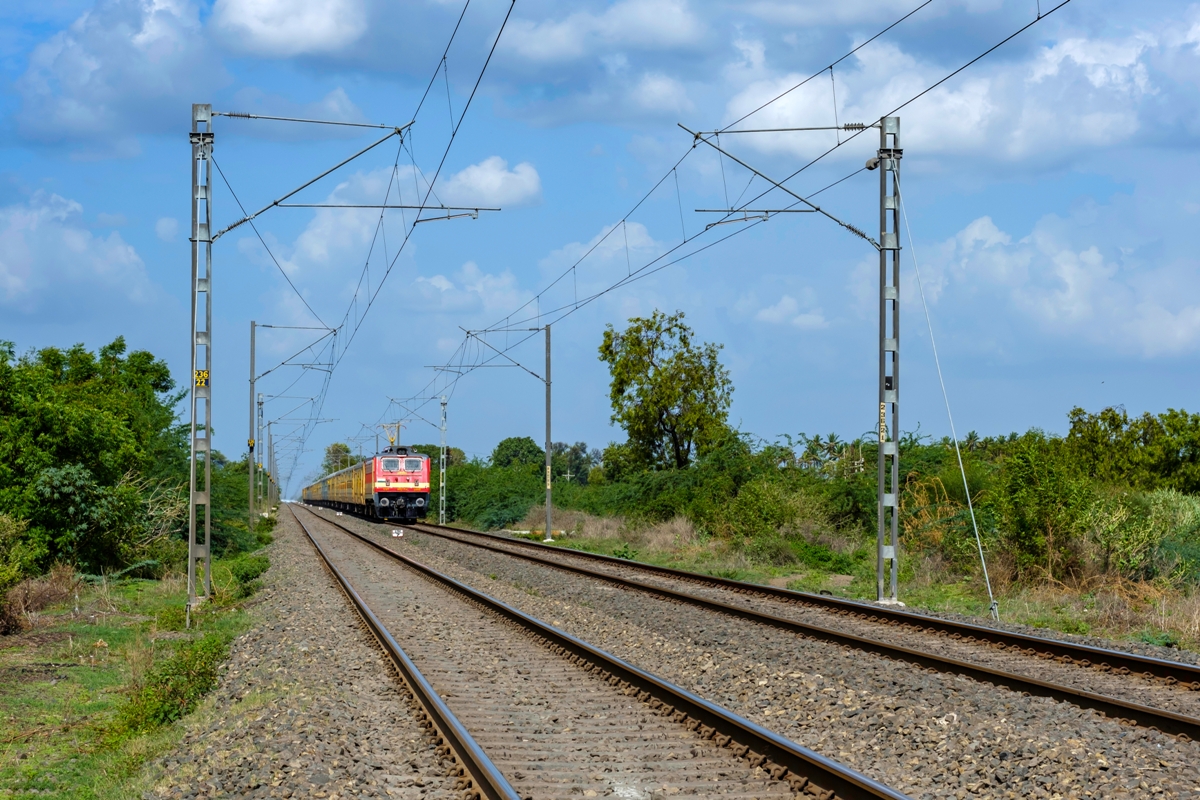It happened in 1995. Although there is mention of the incident on the internet, not much is known. A first-person account by S P Khade
Rejuvenation after a railway accident is tough and a sequel of accidents is devastating. Sequel will be re-collapsing of a house during rebuilding, enforced by disasters. I recall one derailment in Khandala ghat which brought multifarious rotten luck, manifesting that misfortunes never come alone. Each catastrophe led to a severe affliction. Before a blow was downsized, another hit from nowhere.
A train ascending a ghat is pushed from behind by a banking engine which is attached at the foot of the ghat, Karjat or Kasara. This additional engine is an escort, a guarantee for the arrival of a full train at Lonavala or Igatpuri. Parting of a train without banker will leave some dead, departed souls!
The job of working of trains in ghat needs skills and is done by those who know their onions. Working a train by two locomotives and two drivers is as difficult to imagine as its operation itself. A back seat driver in road vehicles is a nuisance but for banking, a great assistance. From their cabs at either end, the two drivers can neither talk or rock nor see or plea. The festoons of hose pipes running from one end to the other, provide a continuity. The destruction of the air or vacuum is not only for braking but conveys a message of braking. The drivers remain vigilant like soldiers at borders and keep watch on the gauges. The actions of the drivers are facilitated to be synchronous, through gestures, as they call in choreography, by gauges. A dance of two dancers with light and wooden on foot will sound banal but bad synchronism of drivers for the trains will be fatal.
An express train left Karjat. There are three lines in the ghat section. The train was signalled to move on the bidirectional middle line. Near Jambrung, the tunnel for this line is exclusive, other two lines have their exclusive alignments too. The front portion of the train derailed near Jambrung. The rear driver continued to push the train, smashing a few coaches completely. Bad luck never misses an opportunity to cause havoc. A tunnel designed for one line, got totally full with the smashed coaches. The coaches now had turned into debris which looked like a cork stopper of a bottle, a premature superannuation. It was impossible to walk through the tunnel to reach the other end. At the spot, no one could walk behind anyone, no one could lead anyone. The tunnel sang a requiem.
Before the commencement of restoration, we got a feeling that restoration is impossible and we may have to leave the coaches where they were. Of course nothing is possible till it is done. Once the work started, a way forward was found. Just as a burning house provide a light for initial firefighting, the damaged parts suggested a method to go ahead.
The trapped people were in perfect hell, rescuing them by gas cutting was shifting them to a bigger hell, temporary may be. The heat must have given pains to them but the joy of getting free must also have burnt out their pains. For them it was a surgery without anaesthesia but only hope of life.
The fortunate ones could inform their names to the PRO outside the tunnel and the unfortunate ones became nameless bodies. It is depressing to realise that the people who were referred as passengers and had names, became bodies in a short time.

As the accident was major, the train schedule between Pune and Mumbai was totally disturbed. The caution order referred in railway parlance as “stop dead and proceed” was issued to all the trains running on the two healthy lines. I wondered whether it tacitly suggested a presence of dead bodies at the spot!
After the trains came to a stop, the inquisitive few tried to get maximum out of this brief stop crowded at the rescue spot, in hurry to see, in flurry to forget. The press reporters came like swarms, to make a story for the rest of the world, easy to read, hard to verify. Railways have entrusted the responsibility of dealing with the press to PRO, relieving officers on active duty, to collect scars, to prove their merit.
The bodies were kept in a vacant space, away from the rescue operation, till they were shifted for the post-mortem and police formalities. This was also the only suitable place we could have our lunch. The availability of field telephone at this place, connecting the control room, suited us. The rescue team had missed the breakfast due to urgency to remove the trapped passengers. Now even the bodies were removed and we all could squat on haunches for the lunch, with the bodies in full view. The fear and even discomfort to have lunch with dead bodies by our side had gone. The heap of nameless lifeless of the asleep was more like a war medal. It is difficult to eat with dead body in sight, but we ate ravenously. Under unusual circumstances, mind considers unusual things as usual. The livings have more requirement than the dead, the rescue team had a minimum of three days of work on hand and were badly in need of food.
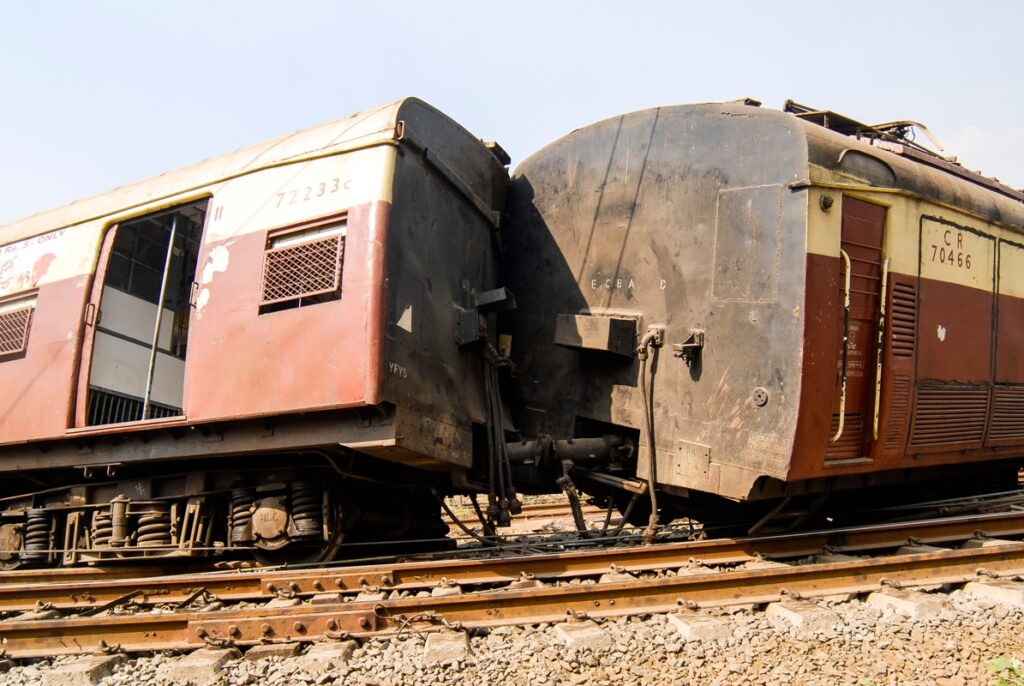
A coach, whose body is in good condition and the damaged bogies underneath, was being tackled. The pieces which could be loaded in a open wagon were despatched as such. But the loading of full coach body in a open wagon was difficult. Even if such loading was done, the curvature and the tunnel would have made the movement difficult. It was therefore decided to replace the damaged bogies. The coach design is a simply supported structure on the bogies with a male female joint. The coach was needed to be raised quite high to replace the bogies. Temporary support of several wooden blocks one over the other was taken. It was to be an unending effort with uncertain result. The tunnel base is never in one plane. A side drain is needed for the rainwater which is below the rail level. The wooden blocks for support were therefore critically balanced. They were like a card pyramid, ready to fall down any moment. Slowly, the coach was lifted almost to its desired height. The removal of this coach was a bottleneck for the rest of the operation and therefore lot many staff did not have any immediate work. They gathered around the coach having nothing better to do. One of the breakdown staff watched the operation, by standing between the tunnel wall and the lifted coach. It was somewhat ludicrous as he was not required to stand there. Suddenly, the coach and the packing below collapsed like a pyramid of cards. He got trapped with back to tunnel surface. He was rescued immediately and appeared in no danger. Lot of officers gathered around him and all asked him to see the doctor at site. He got lot of attention; he therefore basked due to officers’ favour, talked a lot, balked due to ballast, and finally walked to the doctor. The doctor was my friend and therefore I too went to him. The doctor was not rated medically very high. He examined him, asking him to remove the clothes above his waist. Two site chairs, a medical box and a stretcher lying nearby converted the area around him into a temporary dispensary. The doctor gave him some tablets and advised him to go to Kalyan hospital. This was the maximum which was expected from the doctor. After the patient left him, what he shared was in contrast to what I had felt. He said that the injured would not survive. This was a depressing since the injured had worked under me during my previous posting and knew him personally. The doctor’s words came true within a week. Good is a good doctor but bad is sometimes correct.
My right toe was slightly injured in the melee due to toppling of the coach. I was not required to monitor this activity. I had volunteered and had no right to complain about the injury, volenti non fit injuria. The doctor being my friend, bandaged my toe without my request. The toe now looked double of its size. I now got the attention of people around me. It was a false exhibit of myself going extra mile, Suppressio veri, suggestio falsi!
I joined the team with the decoration of bandage on my toe.
The news of this accident had reached the medical department and they hurriedly despatched additional medical help and removed the injured to the hospital. The portmanteau of medicines received was promptly opened by the doctor who took out a jelly like medicine from it. He signalled me to come closer, removed the bandage over my toe and put the jelly over it. With a small injury to my toe, I could walk pompously and now with the jelly the injury mark almost vanished. I expected a bandage over my toe for my swagger which the doctor could not understand and said that the jelly was very effective and nothing more was needed. What was help for him was hurt for me. I knew the truth but now I could not brandish my toe as a symbol of extra work. The credentials had vanished before seen by the D R M. An injury in restoration of accident is a commemoration, a medal, which now became non cognisable. I remembered a phrase, a man who does more than what he is paid, gets paid more than what he does! In Government it means appreciation which was now lost.
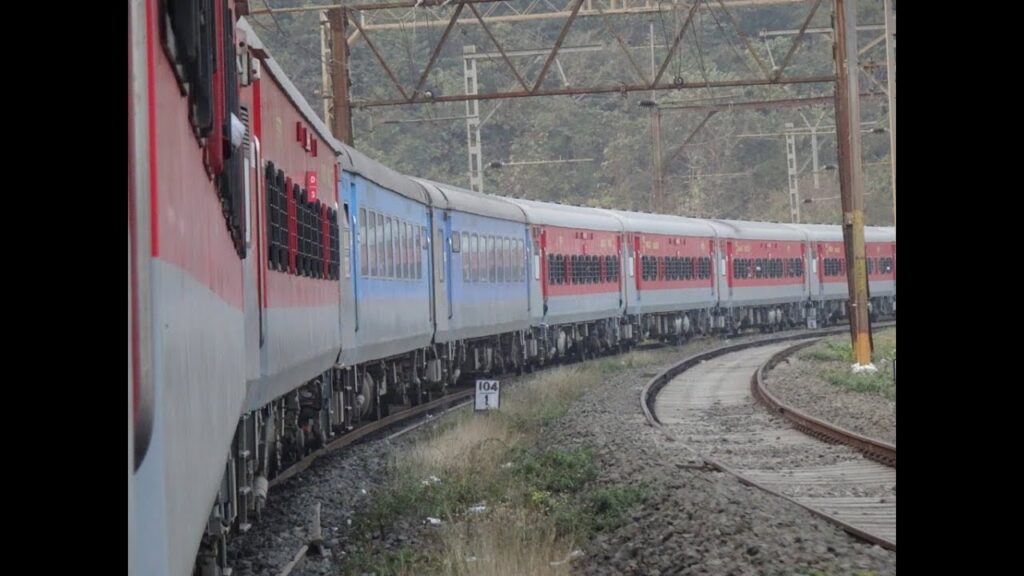
A caution order had continued. Indrayani Express to Mumbai which stopped on this caution order gave a heartache to all at site. If it was not one thing, it was another, a problem after problem, magnitude of the second could be anything.
Indrayani stopped and the over enthusiastic driver and assistant driver got down the cab which was out of course. The next thing I knew was that the train started rolling down towards Karjat without a driver and assistant driver! We all were stunned. The train soon caught the runaway speed without the crew on board. A train fully loaded with people running without crew meant a train running to meet the accident. It would be a bigger one than the one we were now attending. With large number of people on board, the casualties would be unimaginable. It had happened in the presence of few as many of the officers were inside the tunnel. I was one the few to witness the rolling down.
I had worked in rolling stock but now felt mortified. I knew that now nothing could be done other than wishing a Godspeed.
I suggested to the DRM, to instruct control to give clear signal to the train as it moves. All station masters were told to remain on platforms to watch the train and report. The loco was not drawing power and I expected that the train would eventually come to halt. The action was taken as I suggested. Now nothing more was in our control other than controlling our response to match with the current situation.
Only a divine intervention or a magic could save the accident. Unbelievable things happen in movies. But it happened in reality to prove that the truth can be stranger than a fiction. The runaway train came to a halt before entering on Karjat platform! Exactly as it should have stopped and where it should have stopped, as if everything was in order. A place for the right thing and everything in place. It was a halt with an error of six sigma, exactly where it was expected.
While we were still not out of shock at accident site, we got this good news from the control. It was so precious that I still hoard it as a priceless diamond. The train was asked to be detained to see for ourselves, not taking anyone’s word for it, nullius in verba, before departing for onward journey. We reached Karjat by the following train to notice that the train was really in good fettle. Most of the passengers were unaware of the averted mishap and were enjoying the bliss of ignorance. There are always some in any group who hear a wakeup call early. These people realised that the train was walking a green mile. They pulled the alarm chain continuously, entreated us for the cause on our arrival. This was an air brake train. A chain pulling results in a drop in pressure gauge and thereafter the driver destroys full pressure which results in the brake application. In this case there was no driver on board to apply the brake! The chain pulling by many people could have resulted in a brakes getting applied, a conjecture since the air brake was still a new feature. No brakes on rakes would have made flakes of the coaches. I recall a quote of Einstein, “There are only two ways to live your life. One is as though nothing is a miracle. The other is as though everything is a miracle.” The stopping of the train can be a miracle or no miracle.
Some people may remember this incident which was reported in the newspaper in the mid-nineties. The coverage was fairly wide. Like all news items, this was also gone out of memory and as there were no casualties and no loss of property. May be because of this it did not become a world news, a silver lining for the dark cloud. It was therefore forgotten quickly.
I was in charge of the OHE and my presence was needed at the site of accident after all other departments had finished their work. My job was like finishing touches, a last word, nothing more to add. Instead of getting tired for no reason, I was asked by the DRM to return home or take rest in the rest house at Lonavala. It suited me as I was looking under the weather. I was expected to come back to the site after couple of days. It was possible to monitor the progress of work from the control office even from home and therefore I did what I was told.
I happily took a train to Dadar. Hardly had I reached my home than I was told to return. When the bosses are under tension, they blame juniors. The person who had suggested me to take rest was now saying how I had left the site. He was not able to stand up to his boss. The destroyers of mental peace are not necessarily wicked people but most often the spineless ones.
I returned back to site by the first available train. By then it was dark and all other departments had finished their work and their staff had left. My staff had started the OHE work. The damage to the OHE was excessive and the restoration needed wiring train which was in place in the tunnel with diesel engines and its thick smoke. Almost every one of my section including the assistant officer were on the top of the train. The smoke, lighter than air occupied the upper part of the tunnel. The upper part of the tunnel looked like a smoke gutter, draining out the smoke to atmosphere, like a river getting emptied in sea. The staff appeared to be doing some Bollywood dream sequence; some moved without a leg, some appeared to work with invisible hand. Some who were finding difficult to breath in the thick cloud of smoke tied a cloth on the face, looked like Halloween figures. To encourage the staff, I also climbed on the top of the train. It was difficult to breath without even doing any work, I could imagine the difficulties of the staff who were working so hard, pulling and lifting heavy wires and fittings. Least what I could do was to be there on the top of the wiring train. The working platform on train top, was invisible due to smoke screen. The tunnel was totally veiled in smoke.
The four or five coaches and a wagon with the reels of copper wires were fully utilised for the work. But at one location, a gap between two coaches, bridged by attic door type arrangement, was not bridged. Staff was jumping over at this location. As the work continued, with the engine stationary, the smoke cloud over the coaches increased. The visibility became bad to worse. When the work picked momentum, one of the staff forgot the absence of the gap and fell down on the coach coupling. Luckily his head was not hurt and nothing much happened. It was a narrow escape. The staff knew the bad luck associated with this tunnel, I too was shaken for a moment and got comforted when I remembered that the worst place to be feared is inside the mind.
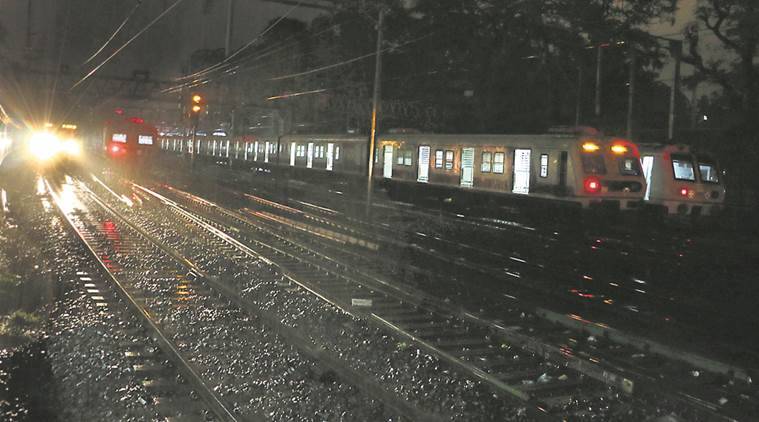
The OHE work became challenging because of night, smoke affecting breathing and visibility, making the staff tired. The single line tunnel in curvature and a wiring train occupying the track, made the walking for the ground staff difficult. The catering staff had left and even tea was not available to refresh us. In spite of this, the work was completed earlier than the forecast.
The doctor had proverbially stepped on my toe. The normalisation of traffic had taken about four days but the time for the OHE restoration was record low. For the staff it was something like an achievement fit for Guinness record. The happiness around, lifted me to cloud nine. I told to the chief that the work was completed and that the staff had worked very hard under difficult conditions. I did not hear any response from him, I wondered whether I had put my foot in my mouth and wondered still if his telephone was without a mouthpiece. In my happiness I forgot that for the chief OHE was a part of the whole and the time for restoration was more. There were many reasons for the delay for which his top management was unlikely to be soft on him. I presumed that he had to be happy for the quick OHE work. The annexure to, prelude to my over the moon talk, about a staff falling down from the top of a coach, made him talk, a bitter after a long pause.
The chief responded, “Ok, I am hereby giving a group award to the staff and charge sheet to you for the mishap.” Uncouth speech of an Indian boss. Brickbats for moving a mountain.
The charge sheet was never issued but the de-motivational words caused hurt.
Long after when I rose to senior level, I realised that, in my happiness I had forgotten that for the chief OHE was a part of the whole and the time for the restoration by all department was more and he could not be expected to be happy for a part. The reasons for the delay included a death, for which his top management was unlikely to be soft on him.
The work got over by the morning of the fourth day, A train going to Mumbai was stopped it at the site for boarding the staff. At Karjat, the station master brought in a message that RRI at Dombivli had caught fire, a domain of the Signalling and Telecommunication department. I therefore did not worry about it and went to sleep. At Kalyan, while still dozing, I heard a signalling department staff talking to someone that traction voltage had got impressed on the low voltage cables and made them to catch fire. I dismissed the talk as the signalling and traction circuits are totally separate. I thought that the signalling department was trying to divert attention. This self-convincing argument suited me since I was tired beyond limit and needed a night in bed to get fully energised. I therefore went straight to my home at Dadar. The OHE was feeding the power to the train by which I was travelling, I got convinced that the problem at Dombivli was not mine. I tried to make my own luck. At the moment, it suited me to make me one, in my thought and action. I therefore proceeded straight to Dadar.
On getting down at Dadar, I walked with great efforts, taking double the time than the normal to reach home. But before I reached, control office had contacted me to inform that I was immediately needed at Dombivli. I still felt that the problem was of signalling department and I conveyed my opinion to the control room. The possibility of chief of the signalling talking to my chief did not occur to me. The possibility of controller repeating my words to my chief also did not occur to me. When a message is conveyed to a third person, its meaning gets changed totally. The chief got angry beyond limit and the message given by the control reflected his anger. I was asked to reach Dombivli immediately.
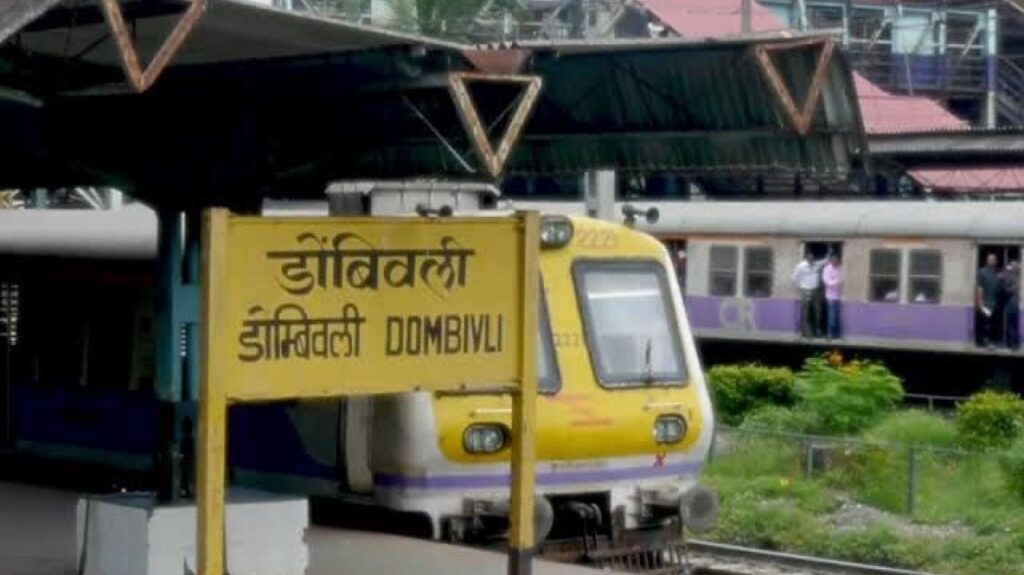
My energy had reached its lowest level. I was a drained battery, forced to pour electricity in demanding equipment. My eyelids were heavy but the message was strong. An elephant in the room was best to be left in the room! I had to leave promptly, peril for me loomed in my front. I took one class four staff as my support and left. The RRI is about two km from Dombivli station, near Kopar station. I walked along the track, like Mahatma Gandhi, putting my weight on shoulder of the staff to the extent possible.
On reaching, I found that it was indeed my problem. The signalling and traction cables were laid near each other due to space constraint and insulation had failed.
The problems came one after the other after the derailment in ghats, death of staff, runaway train, and now this fire!
I got the information that the failure took place due to attempted theft of the cables but what amused me was the complicated theory developed by my dour, complacent immediate boss. The chief was not impressed with my theory and concluded that I found an escape route to avoid the blame. It is difficult to accept blame when one gives his maximum. My promotion was due shortly and I felt that I knew the future, the writing on the wall was clear. I criticised him privately.
Someone got depressing information from Delhi that promotion order was being issued, which did not include my name. Where upon the chief reacted in my presence, “If Khade’s name is not in the list, then no one’s name can be in it.” I felt that it was fun at my cost. Or was it a surprise? I was not expecting any good to happen but I was neither prepared for black humour. Soon the order issued with my name in it. The intentions which the chief had inside him, were hidden well from me. The supposed outburst of the chief was like a baton in the hands of generals, more for decoration than for any practical use. I had criticised the chief for being rude but like his intentions, my criticism too was hidden.
The series of his outbursts could be hot water showers to make me ready for wearing regalia for higher post.



